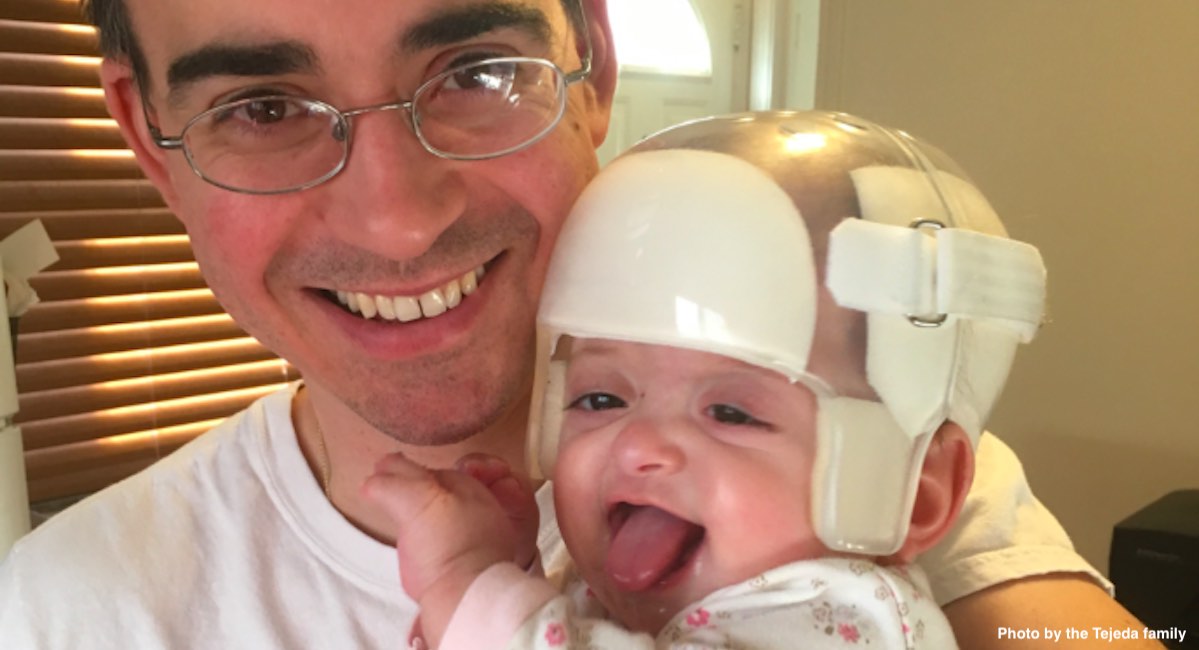While 2020 was difficult for everyone, many families of children with special needs offered valuable lessons for responding with grace and patience to constant change in the world around us. Elena Tejeda, mom to Maggie, who has a genetic condition called Apert Syndrome that causes malformations of the skull, face, and limbs, recently shared with Live Action News some of the life lessons that have sustained their family so far and that lead them to look toward the future in hope.
Learning to be Hopeful and Resilient
One key for approaching 2021 with hope and resilience is being aware of and managing our own expectations. Tejeda told Live Action News that thanks to one skull surgery and three hand surgeries in Maggie’s young life so far, and in anticipation of potentially another skull surgery, several hand surgeries, and possible eye surgery to come, her perspective on how doctor visits and medical procedures will go has changed. “I now have complete expectation that there will be hurdles — hurdles at appointments, hurdles before every surgery, but they will be surmountable.”
But Tejeda and her husband Carlos didn’t expect such hurdles when they went into the hospital to deliver Maggie, who will turn two in March. “She’s our fourth baby. We had expectations that this is just going to be another kid. She’ll be born, we’ll take her home from the hospital, we’ll adjust to life with a new baby and another sibling in the family.”
But when Maggie was born and the Tejedas realized along with the medical team that she had very distinctive facial features as well as webbed feet and toes, suddenly, “There were so many questions and so few answers. It was scary.” Fortunately, Tejeda’s obstetrician responded perfectly to the unexpected situation. She told the couple, “She is beautiful, just love your baby right now. Just love your baby.”
After the delivery room, though, the Tejedas felt that Maggie was often treated like a “puzzle” that the medical team had to figure out, with all manner of testing and every kind of question (“Does your family have a history of x? Does anyone in your family have y?”) for her stunned parents. Faced with a daunting list of all the different types of surgeons and other specialists that the couple would have to research, contact, and personally interview in order to address Maggie’s premature skull closure as well as her webbed hands and feet, also known as syndactyly, which are all characteristics of Apert syndrome, Tejeda recalled, “I felt so weak. I just shut down.”
One particularly low moment of their hospital stay came when a nurse walked in while Tejeda was nursing Maggie. The nurse reached down to unlatch the baby herself because, “the doctor is here and is waiting” to see Maggie. Upset that her personal space was violated by a stranger and frustrated that Maggie’s feeding was interrupted, Elena prayed silently, “Lord, why is everyone rushing?”
In that overwhelming, lonely moment when “the room [felt like it] was spinning,” an OB walked in to check on her.
She sat down and said, “I might know a little of what you’re going through.” The doctor shared that she herself had a child with Down syndrome, and just like the Tejedas, she had not known until her baby was born. Tejeda’s brief conversation with that doctor was a game-changer for her.
“For the first time since Maggie’s birth, I felt seen as a person, and I felt that Maggie was seen as a person” rather than as a puzzle, Tejeda told Live Action News.

Maggie with her family in November 2020
See each person we meet as a person
Though Maggie’s first 22 months of life included and will continue to include countless visits with the neurosurgeon, two plastic surgeons, an ophthalmologist, an otolaryngologist (ENT specialist), and a physical therapist that make up her medical care team, Tejeda commented that now, they are “never walking in to just get something done [like a surgery]. We see Maggie as a person, and so we’re here to do what is best for her.” Seeing every person as a person is key for the Tejedas.
Looking back on the incident with the nurse who tried to unlatch Maggie in the hospital, Tejeda says if she had it to do again, she would tell the nurse she would have to check back later. “It’s my job now to make sure that other people see Maggie,” she said.
The Tejedas recently had their first negative reaction from another child to Maggie when some children several pews away at church were snickering and making loud rude comments, which they felt they needed to address calmly. Reflecting on that incident later led Tejeda to ask herself, “How do I talk about other people when they can’t hear me?”
Particularly because of Maggie, Tejeda feels strongly that “every word that comes out of our mouth needs to be affirming of other people’s dignity.”
Tejeda has heard the accusations that “pro-lifers are only pro-birth.” But in their family’s experience of the overwhelming generosity of their local pro-life community, she told Live Action News, “I can say as a recipient, these are people who live [being pro-life] past the abortion clinic and past a vote.” She commented that for over a year now, “Someone anonymously financially supports Maggie’s medical needs every month.” The Tejeda family has been supported with meals, money, babysitting, and whatever else they need to love and care for Maggie well.
Tejeda notes, “As a movement, we just need to keep growing in that,” to remember that “every interaction needs to say, ‘I recognize you in your dignity.'”
Follow along with Maggie’s journey here.
“Like” Live Action News on Facebook for more pro-life news and commentary!







